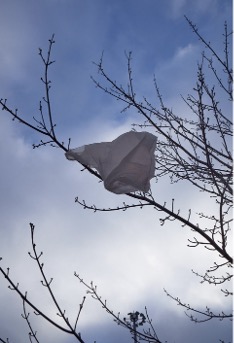How Prospective Students Apply to the Environmental Fellows Program
Prospective students
The Environmental Fellows Program application is available to incoming students for the fall semester of 2026.
Applications for the Environmental Fellows Program are due on either December 1, 2025 or February 15, 2026. Applicants that apply by the earlier deadline will receive an earlier decision from the program. Applications, particularly from students applying internationally, will continue to be accepted on a rolling basis until the Environmental Fellows Class of 2030 is filled. If you have any questions regarding the application process, please contact Amber Hecko at 765.658.4071 or at envfellows@depauw.edu.
Application checklist
Complete these three simple steps to apply.
1. Submit a DePauw University application.
-
Before you can apply to the Environmental Fellows Program, you must first apply to DePauw and be admitted. You will receive information about applying to the Environmental Fellows Program when you receive your acceptance letter.
2. Prepare your application.
Please submit an essay (500 words or less) in response to one of the two prompts below.
-
In the 2024 article published in the scientific journal Chemosphere, “Ecotoxicity evaluation using the avoidance response of the oribatid mite Oppia nitens (Acari: Oribatida) in bioplastics, microplastics, and contaminated Superfund field sites,” DePauw Professors Philips Akinwole and Ken Brown, working with DePauw students, found that soil contaminated with heavy metals, microplastics, and bioplastics had a reduced biomass and low microbial activity. Specifically, they observed that soil mites avoided microplastics even at low concentrations, but tolerated bioplastics until very high concentrations. The study focused on the Jacobsville Neighborhood Superfund site in Evansville, Indiana. First, discuss the general implications of this study for our understanding of soil health. Second, discuss the implications of the findings for your own community. Where would you assess soil health, specifically? How can experiments like these inform and improve policy and civic engagement in communities?
-
This photograph by DePauw Professor Dahee Yun captures the incidental but tangible entanglement of the natural environment and human consumption and waste, as a plastic bag gets caught in a budding tree. Write a personal reflection on the image. What does it say about the entanglement of the human and the natural environments? What personal experience or observation does it call to your mind? Alternatively, consider your own surroundings, and take a photograph, or create an artwork in another medium, inspired by Professor Yun’s image. Paste your photograph or artwork into your response (or upload it as a separate file) and discuss connections and differences with Professor Yun’s image. What did you notice in Professor Yun’s that inspires your own? How does Professor Yun’s photograph and your own inform each other?

3. Finalize and submit your application.
-
Once your application materials are ready, click here to submit your Environmental Fellows program application. You will be directed to login using your application status portal credentials. The application process will include an interview following a successful review of your essay. Should you encounter any issues or have any questions, please email Amber Hecko at envfellows@depauw.edu.
As we read your application, we will be looking for evidence of the following:
-
your ability to think critically about complex issues.
-
your commitment to environmental studies over time.
-
your ability to give clear and specific examples.
-
your distinctive background, experiences, and identity that will enrich the environmental movement and add to the learning community at DePauw.
Contact Us

- envfellows@depauw.edu
- 765-658-4071
-
Percy Lavon Julian Science & Mathematics Center, Room 170
2 E. Hanna St.
Greencastle, IN 46135-0037